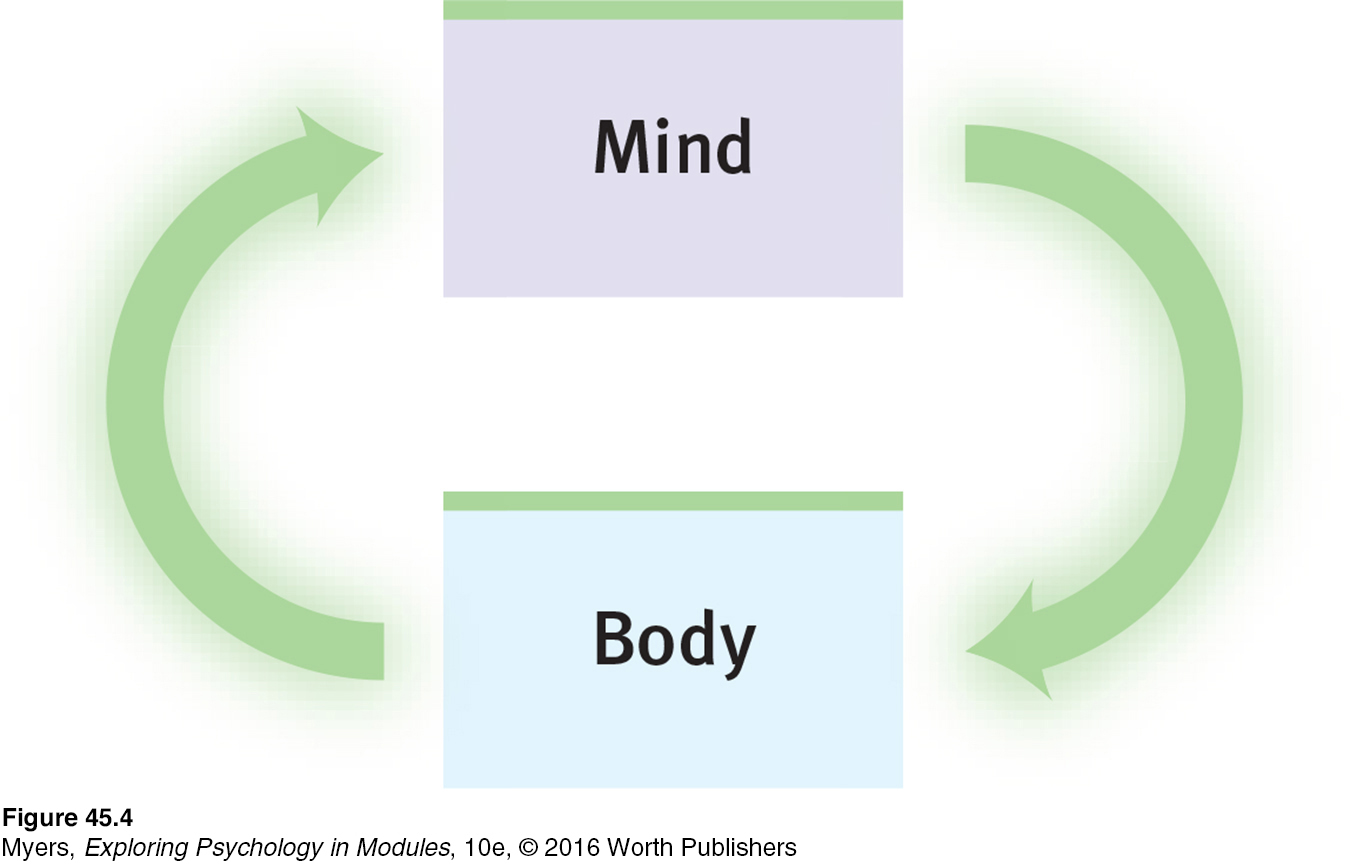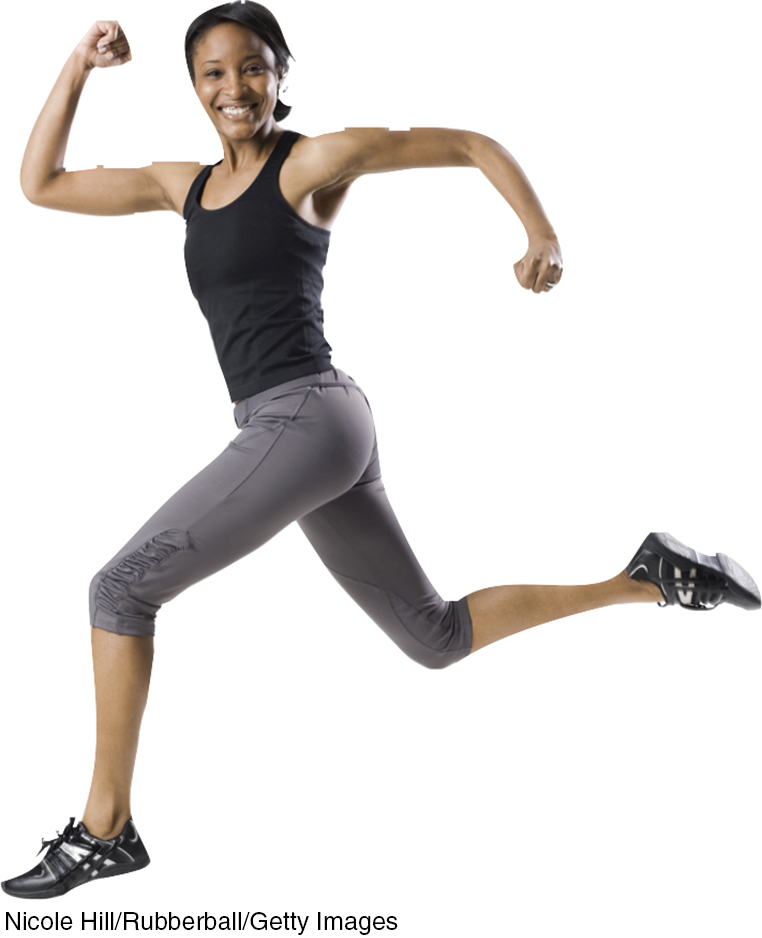45.4 Therapeutic Lifestyle Change
45-
The effectiveness of the biomedical therapies reminds us of a fundamental lesson: We find it convenient to talk of separate psychological and biological influences, but everything psychological is also biological. Every thought and feeling depends on the functioning brain. Every creative idea, every moment of joy or anger, every period of depression emerges from the electrochemical activity of the living brain. The influence is two-

For years, we have trusted our bodies to physicians and our minds to psychiatrists and psychologists. That neat separation no longer seems valid. Stress affects body chemistry and health. Anxiety disorders, obsessive-

That lesson has been applied by Stephen Ilardi (2009) in training seminars promoting therapeutic lifestyle change. Human brains and bodies were designed for physical activity and social engagement, he notes. Our ancestors hunted, gathered, and built in groups. Indeed, those whose way of life entails strenuous physical activity, strong community ties, sunlight exposure, and plenty of sleep (think of foraging bands in Papua New Guinea, or Amish farming communities in North America) rarely experience depression. For both children and adults, outdoor activity in natural environments—
Ilardi was also impressed by research showing that regular aerobic exercise rivals the healing power of antidepressant drugs, and that a complete night’s sleep boosts mood and energy. So he invited small groups of people with depression to undergo a 12-
Aerobic exercise, 30 minutes a day, at least three times weekly (increases fitness and vitality, stimulates endorphins)
Adequate sleep, with a goal of 7 to 8 hours a night (increases energy and alertness, boosts immunity)
Light exposure, 15 to 30 minutes each morning with a light box (amplifies arousal, influences hormones)
Social connection, with less alone time and at least two meaningful social engagements weekly (helps satisfy the human need to belong)
Anti-
rumination, by identifying and redirecting negative thoughts (enhances positive thinking)Nutritional supplements, including a daily fish oil supplement with omega-
3 fatty acids (supports healthy brain functioning)

In one study of 74 people, 77 percent of those who completed the program experienced relief from depressive symptoms, compared with 19 percent in those assigned to a treatment-
TABLE 45.1 summarizes selected biomedical therapies.
Comparing Biomedical Therapies
| Therapy | Presumed Problem | Therapy Aim | Therapy Technique |
| Drug therapies | Neurotransmitter malfunction | Control symptoms of psychological disorders. | Alter brain chemistry through drugs. |
| Brain stimulation | Severe, treatment- |
Alleviate depression that is unresponsive to drug therapy. | Stimulate brain through electroconvulsive shock, magnetic impulses, or deep brain stimulation. |
| Psychosurgery | Brain malfunction | Relieve severe disorders. | Remove or destroy brain tissue. |
| Therapeutic lifestyle change | Stress and unhealthy lifestyle | Restore healthy biological state. | Alter lifestyle through adequate exercise, sleep, and other changes. |
RETRIEVE IT
Question
What are some examples of lifestyle changes we can make to enhance our mental health?